Nickel is an often alloyed element, since it is able to alloy to almost any metal, and as a result, nickel tubing is predominantly fabricated from nickel alloys. Read More…
Since 1986 Magellan has been serving the global aerospace, oil & gas, power generation, petrochemical, bio-medical, pharmaceutical and other high tech manufacturing industries. Suppliers of nickel alloys, titanium, stainless steel and duplex alloys throughout the United States and in over 45 countries.
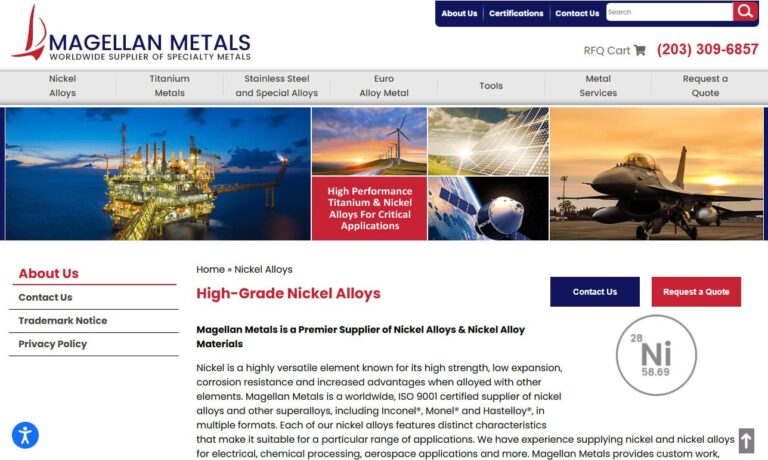
At Metals Unlimited Aerospace, we take pride in being a trusted source for premium nickel materials that meet the exacting standards of the aerospace industry. Our expertise lies in providing high-performance nickel alloys known for their strength, corrosion resistance, and ability to withstand extreme environments.
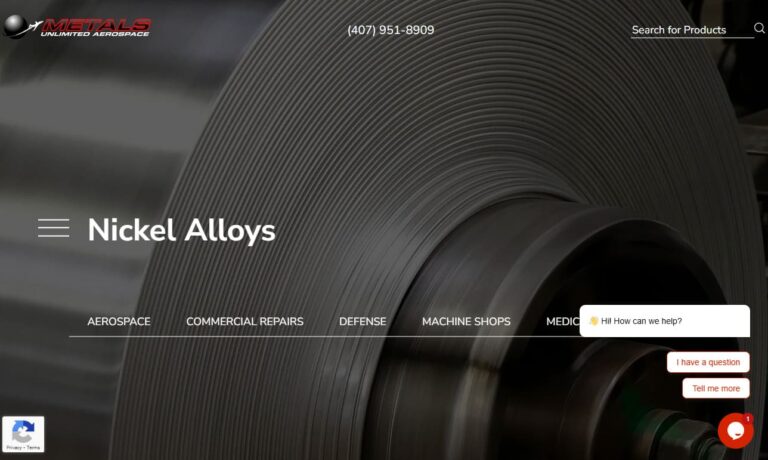
We are Cada Stainless & Alloys, a trusted supplier of high-performance nickel materials engineered for demanding industrial environments where strength, corrosion resistance, and consistency are non-negotiable. Our operations center on sourcing and processing premium nickel and nickel-based alloys that serve critical applications across chemical processing, aerospace, power generation, marine,...
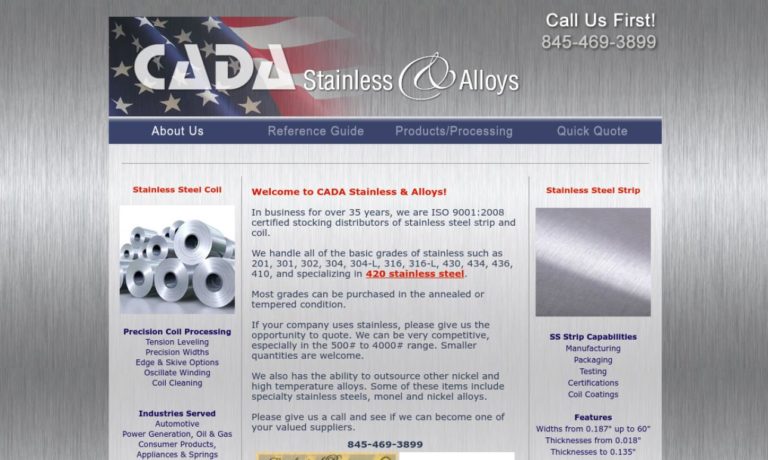
At Service Steel Aerospace, we specialize in providing premium-quality nickel products tailored to the needs of the aerospace industry. Our extensive range of nickel alloys and materials is designed to meet the rigorous demands of aerospace applications, offering superior strength, durability, and corrosion resistance.
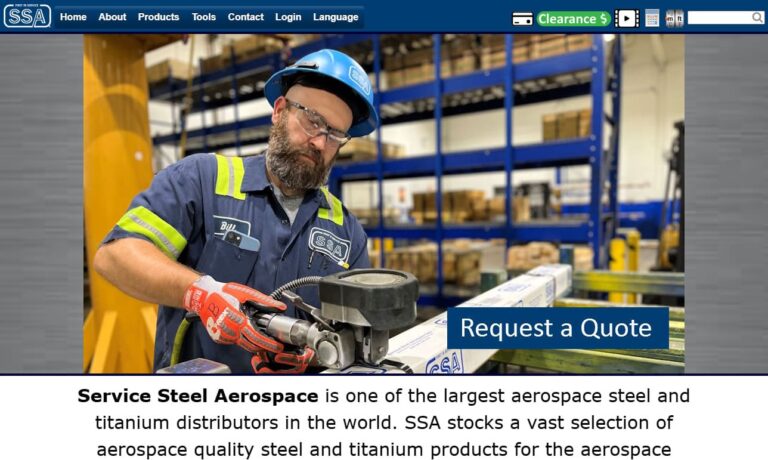
Sierra Alloys is a manufacturing service center specializing in titanium, PH grades of stainless, VAR aircraft alloy steels and nickel based alloys. Sierra's in-house forging and hot rolling equipment serves to meet and exceed the most stringent customer requirements. We have over 30 years experience.

Need nickel, nickel alloys (200, 201, 205, 211, 233), nickel bar, sheet, strip, wire or welding wire? Call us. Our other nickel alloys include nickel-copper, nickel-chromium, copper-nickel, iron-nickel, copper nickel manganese and low OHM resistance alloys. Small or large quantities honored. Not only do we specialize in nickel and nickel based alloys we also specialize in customer satisfaction....
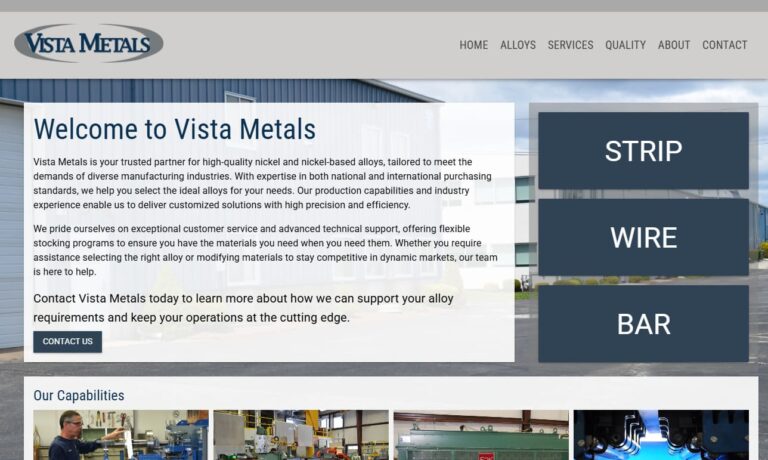
More Nickel Tubing Suppliers
Some common nickel alloys used for tubing include nickel-chromium alloys (Nichrome), nickel-titanium alloys (Nitinol), nickel superalloys (Inconel), and nickel-copper alloys (Monel). Due to the wide range of nickel alloys, nickel tubing can offer a variety of characteristics that appeal to diverse industries including: residential, for use in plumbing, refrigerators and air conditioning systems; medical, for applications requiring hypodermic tubing; automotive, for internal systems tubing such as vehicle brake tubing; industrial manufacturing, for use in material handling and processing applications as well as equipment such as heat exchangers and furnaces; and petrochemical for oil and gas extraction and processing.
An attractive and durable metal, some additional characteristics of nickel include malleability, ductility, sanitary, and excellent strength and toughness in extreme environments.
Nickel tubing can refer to tubing that is wholly fabricated from nickel alloys, or it can refer to tubing that has been fabricated from a different material and then nickel coated. When the tube is completely fabricated from nickel alloys, the two most common processes of tube fabrication are tube rolling and tube extrusion. In tube rolling, pre-impregnated nickel alloys are cut and rolled around a mandrel.
Next, the nickel is wrapped around the mandrel in order to eliminate any retained air and lastly, the nickel is heat-cured and will form a hollow tube once the mandrel is removed. In tube extrusion, a round nickel billet is pressed through a die, which is a hollow profile that shapes the nickel into a hollow tube-shape by means of a pin attached to the die as the billet is squeezed through.
For tubing that is nickel-coated rather than wholly nickel, electroplating is the most common. In electroplating, an electric current is used to reduce positively-charged ions of nickel from a solution and thus, coat the metal tubing with a layer of nickel. Electroless nickel plating may also be used, in which a catalytic process is used to reduce the nickel ions from a solution, which results in the coating of the tube with nickel without having to use electrical energy.

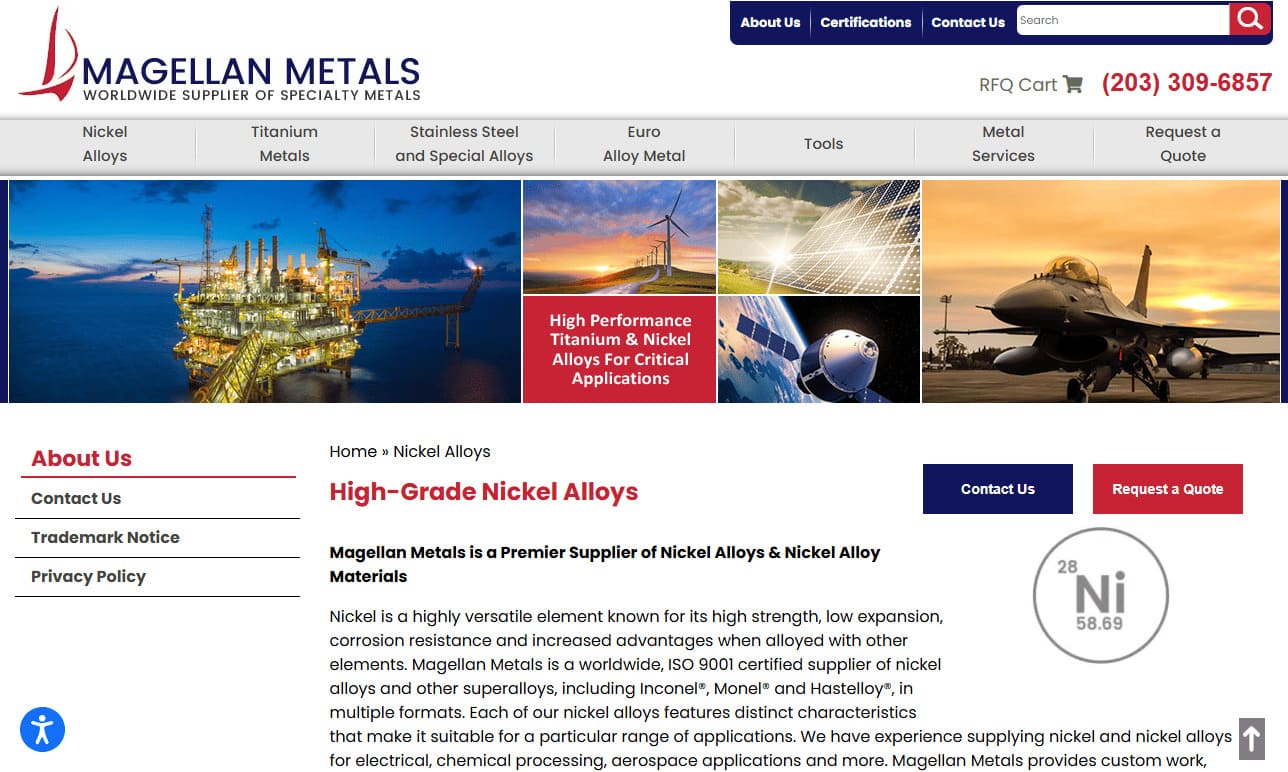
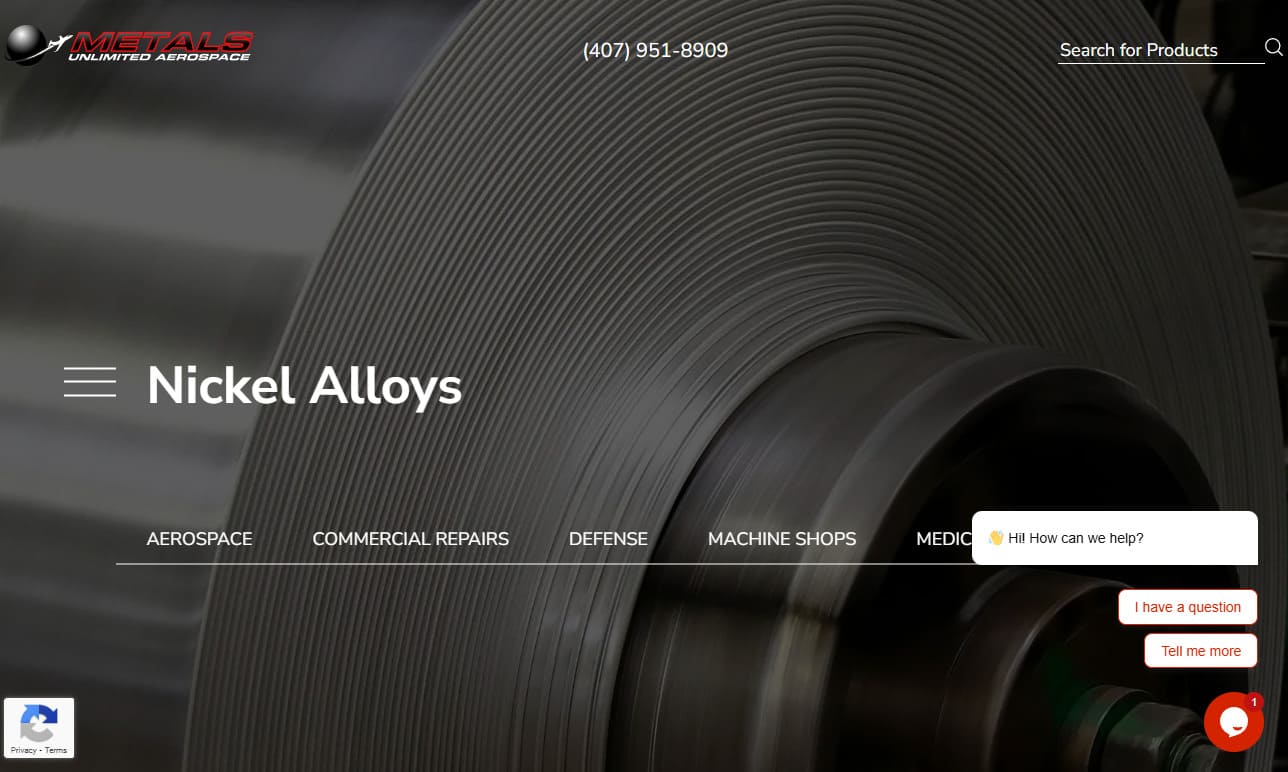

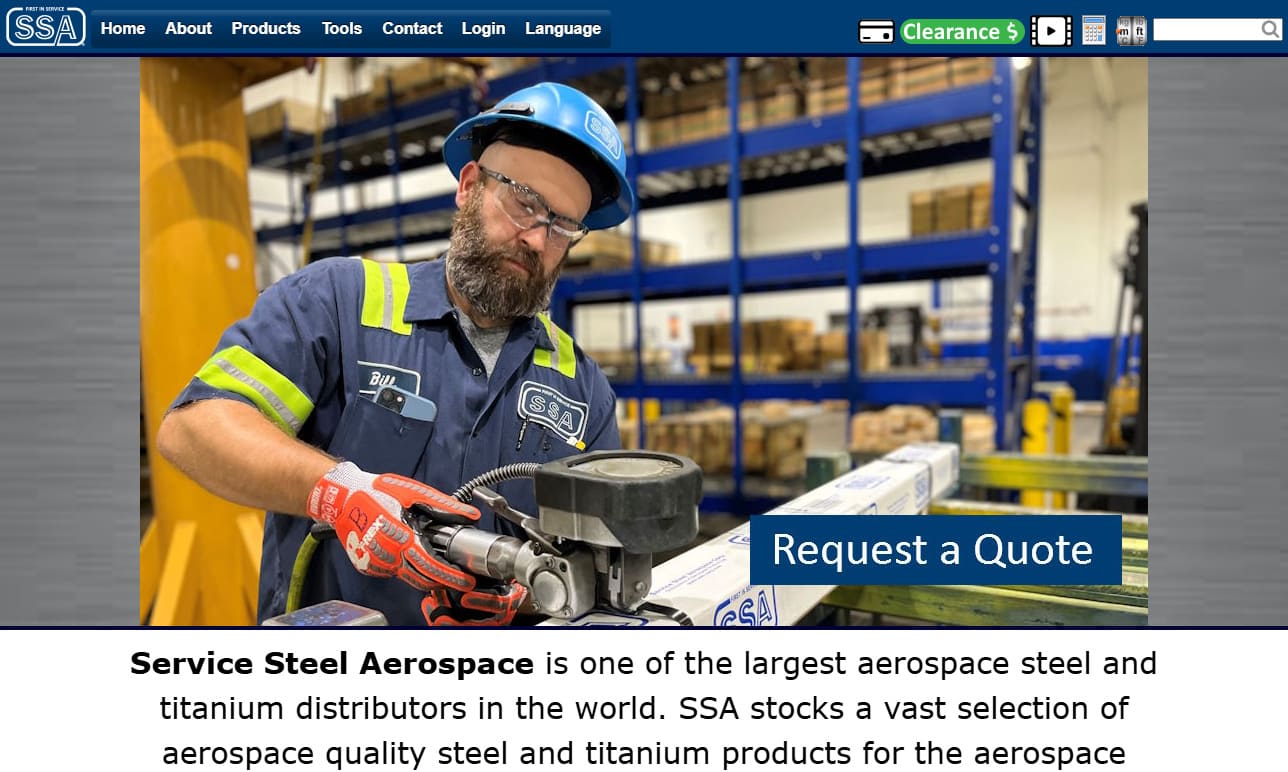

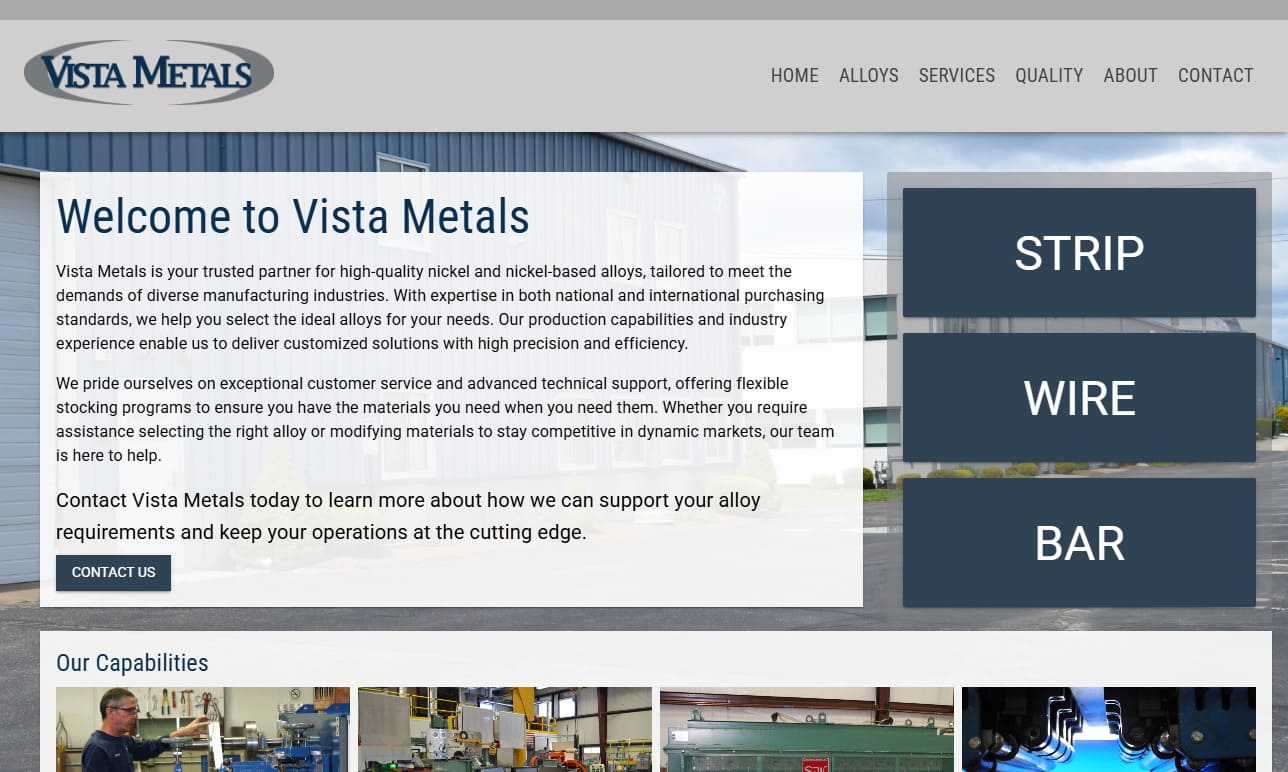
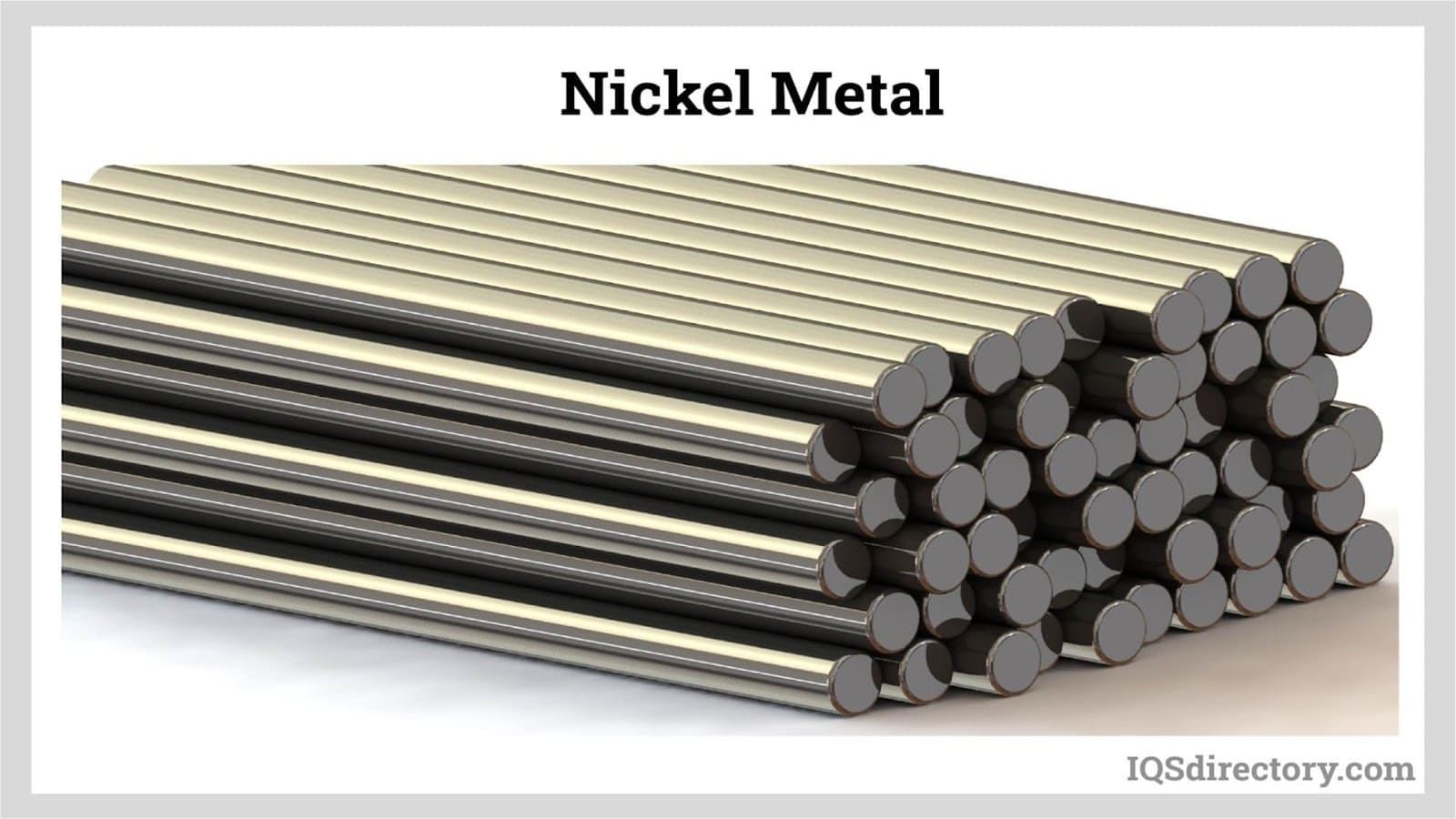
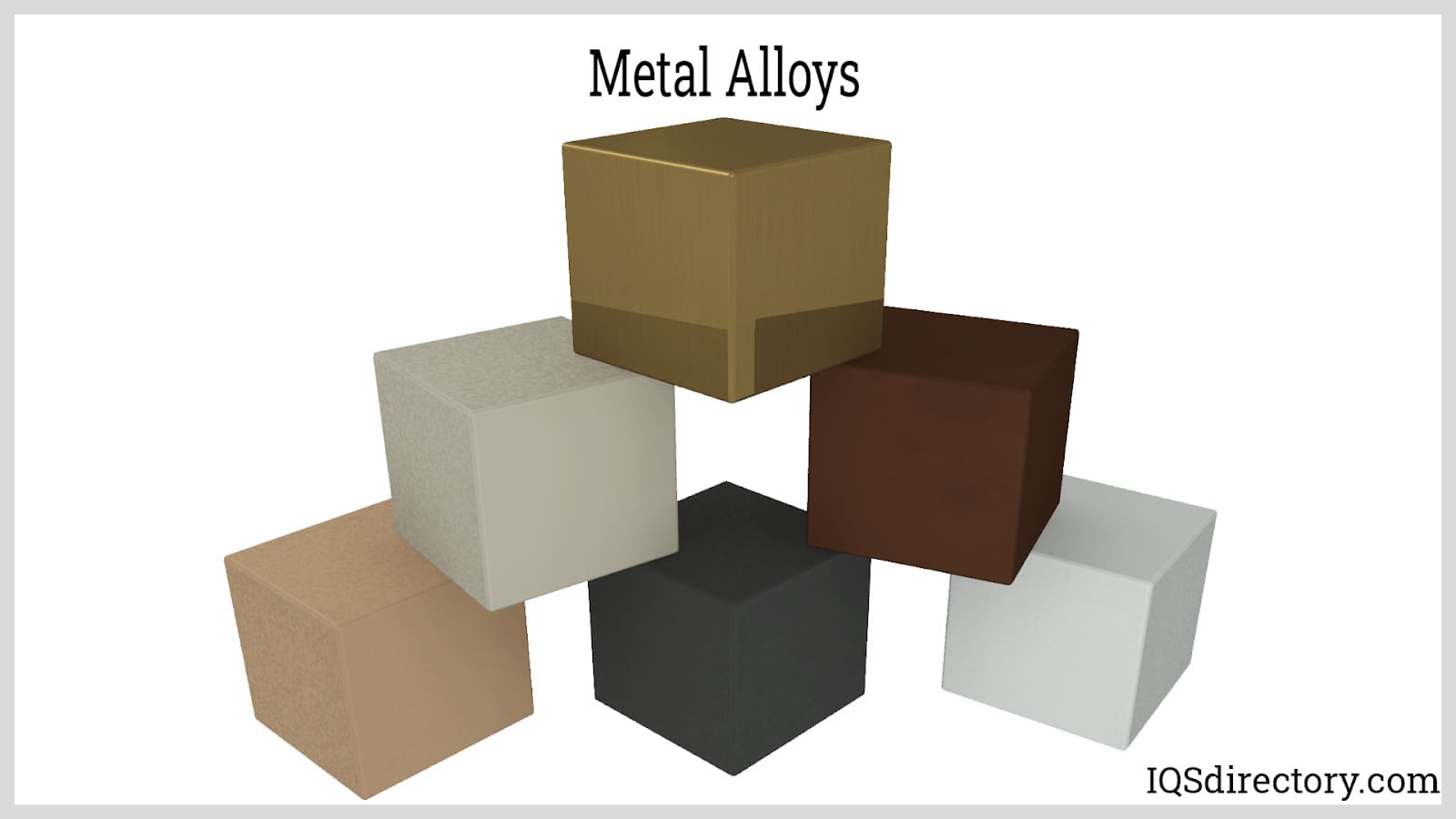
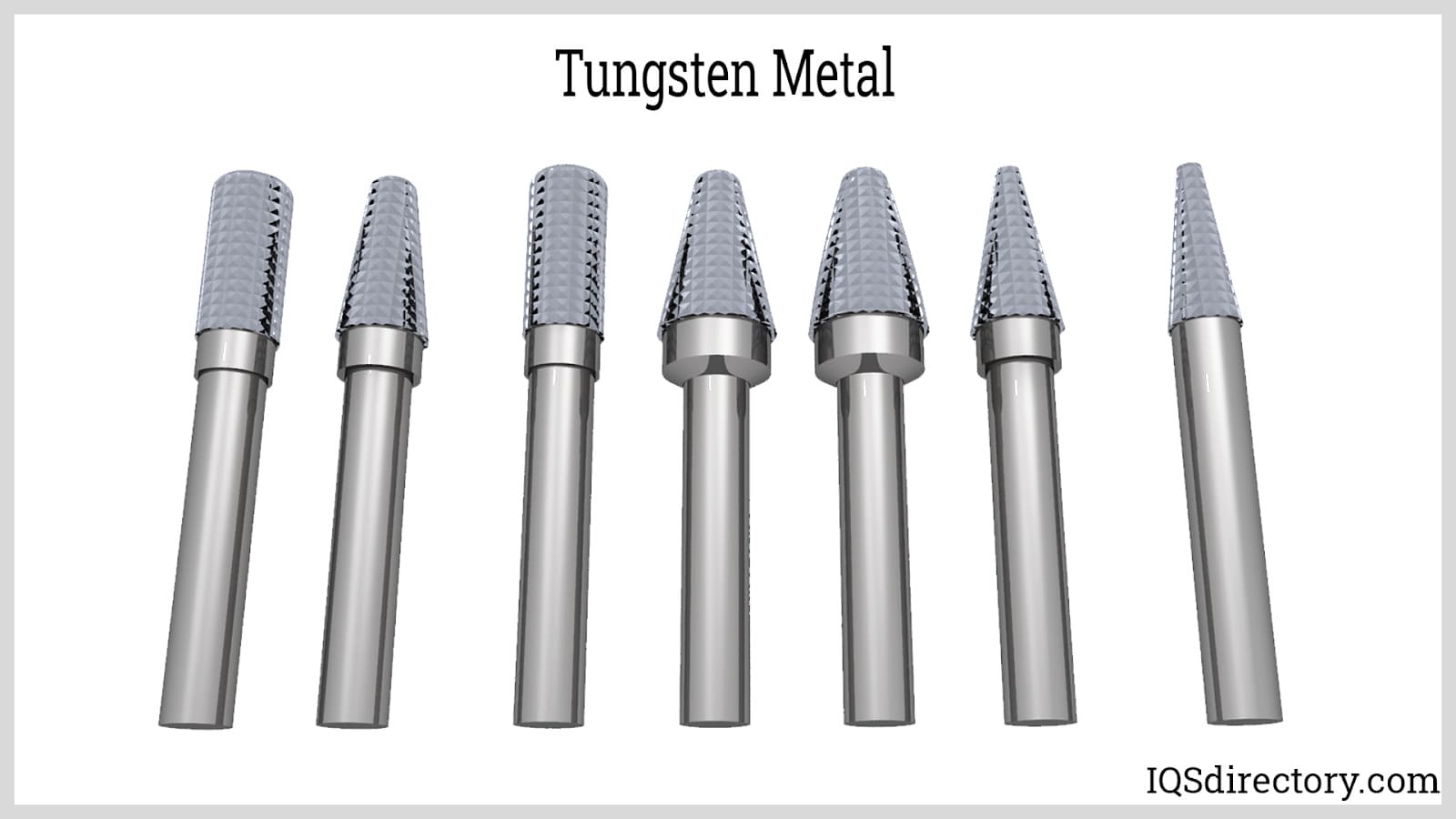



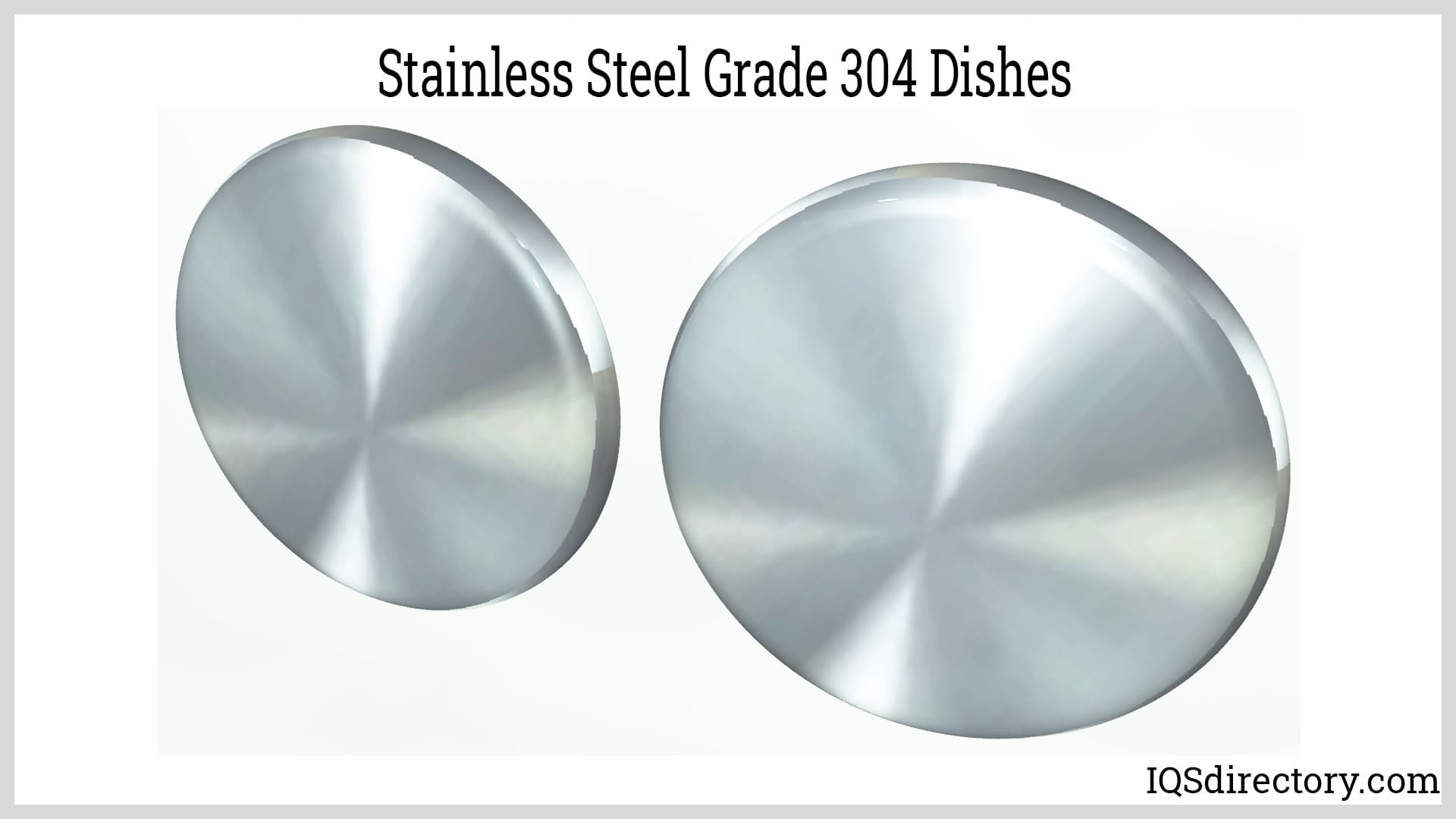
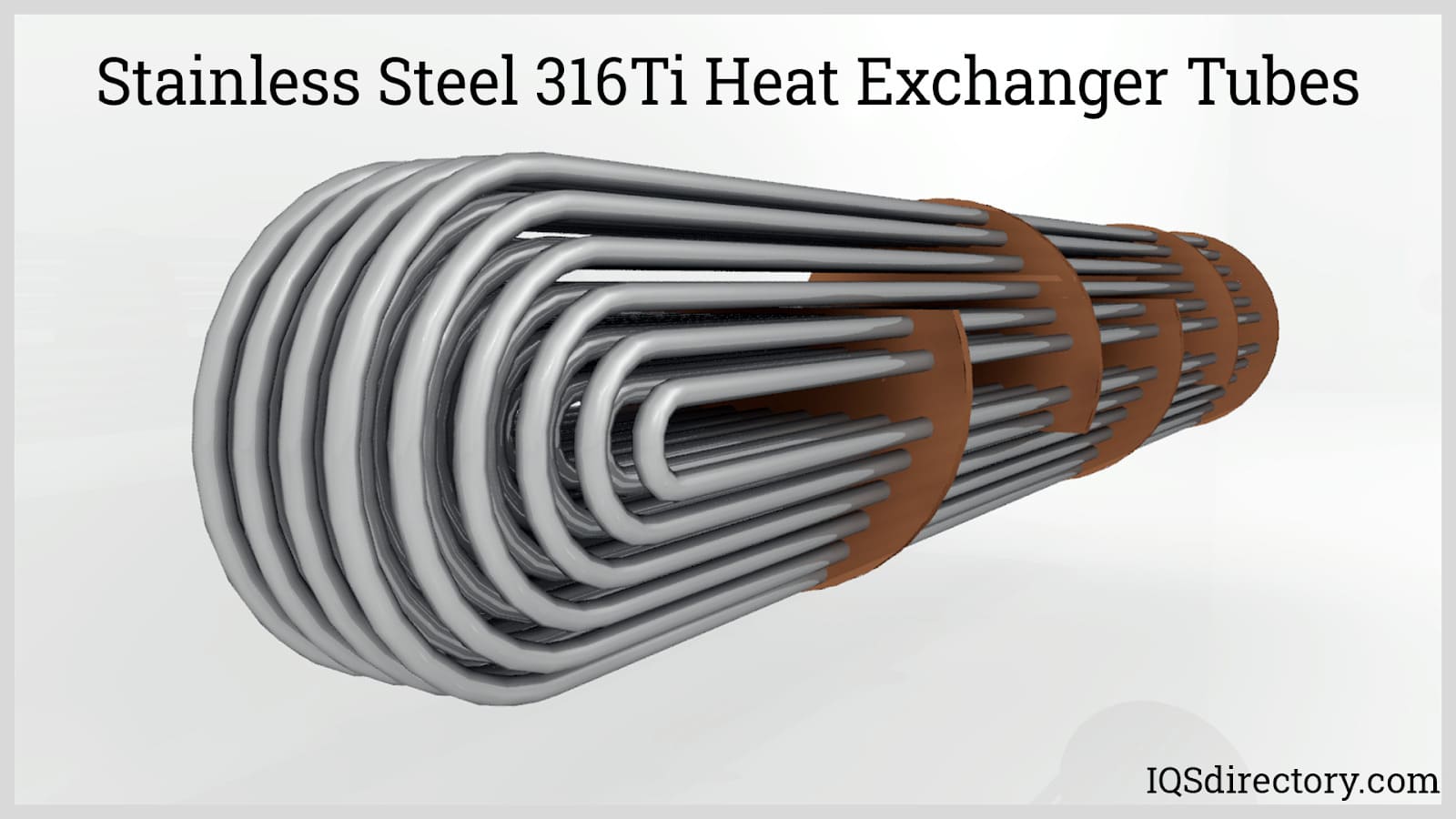

 Alloy Suppliers
Alloy Suppliers Aluminum
Aluminum Aluminum Extrusions
Aluminum Extrusions Copper-Brass-Bronze
Copper-Brass-Bronze Magnets
Magnets Nickel
Nickel Stainless Steel
Stainless Steel Stainless Steel Tubing
Stainless Steel Tubing Steel Service Centers
Steel Service Centers Titanium
Titanium Tungsten
Tungsten Wire Rope
Wire Rope Castings & Forgings
Castings & Forgings Bulk Material Handling
Bulk Material Handling Electrical & Electronic Components
Electrical & Electronic Components Flow Instrumentation
Flow Instrumentation Hardware
Hardware Material Handling Equipment
Material Handling Equipment Metal Cutting Services
Metal Cutting Services Metal Forming Services
Metal Forming Services Metal Suppliers
Metal Suppliers Motion Control Products
Motion Control Products Plant & Facility Equipment
Plant & Facility Equipment Plant & Facility Supplies
Plant & Facility Supplies Plastic Molding Processes
Plastic Molding Processes Pumps & Valves
Pumps & Valves Recycling Equipment
Recycling Equipment Rubber Products & Services
Rubber Products & Services